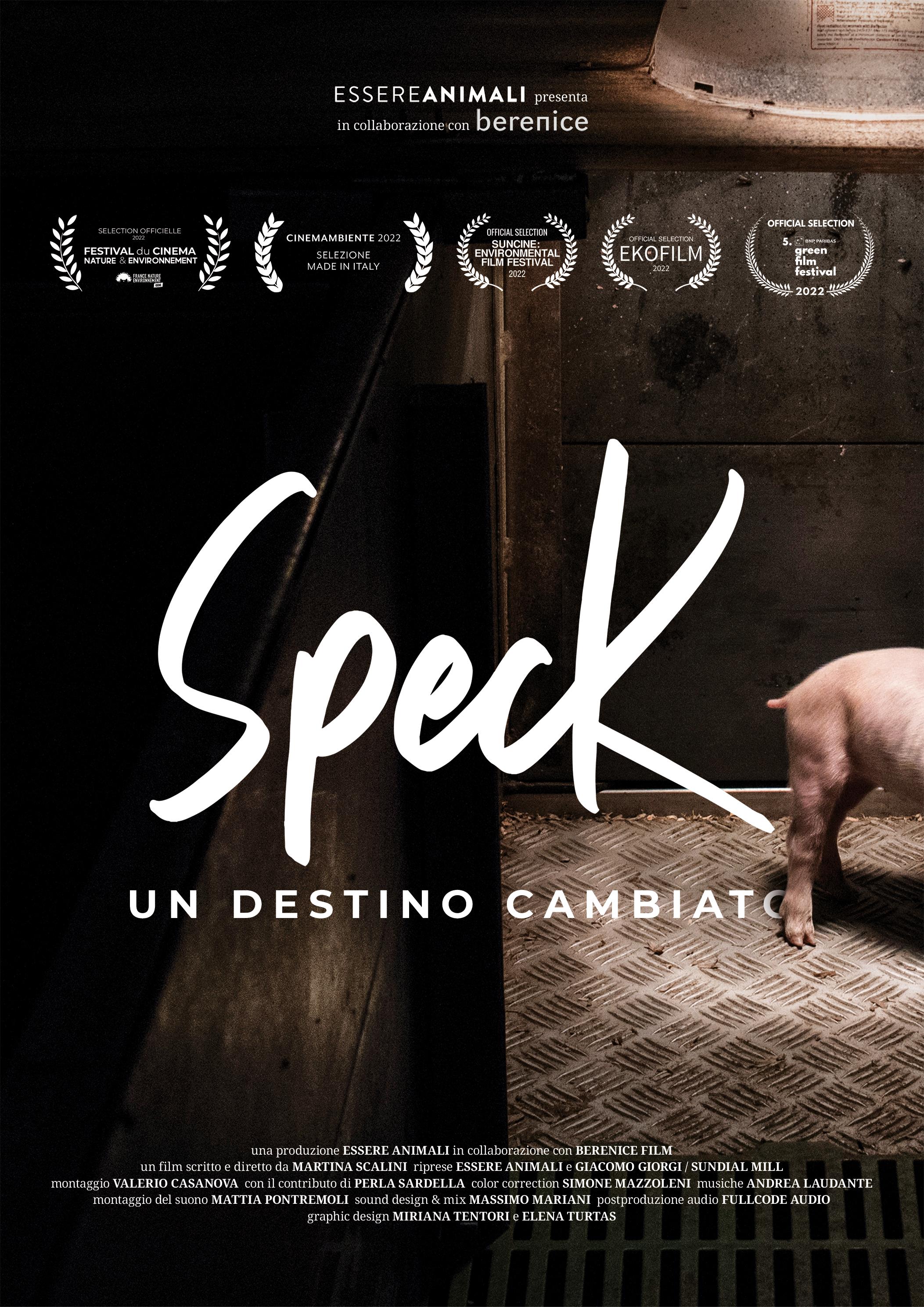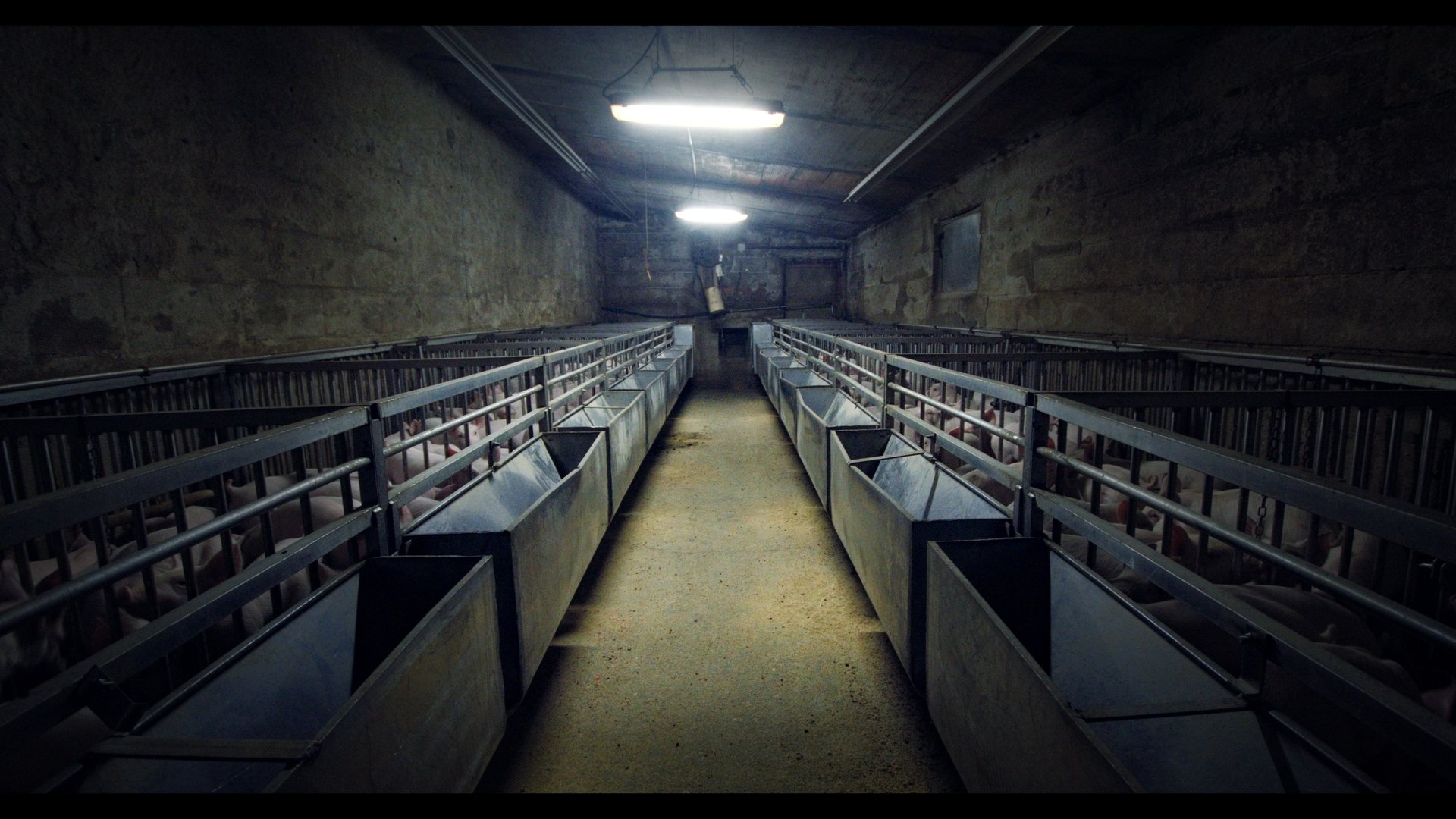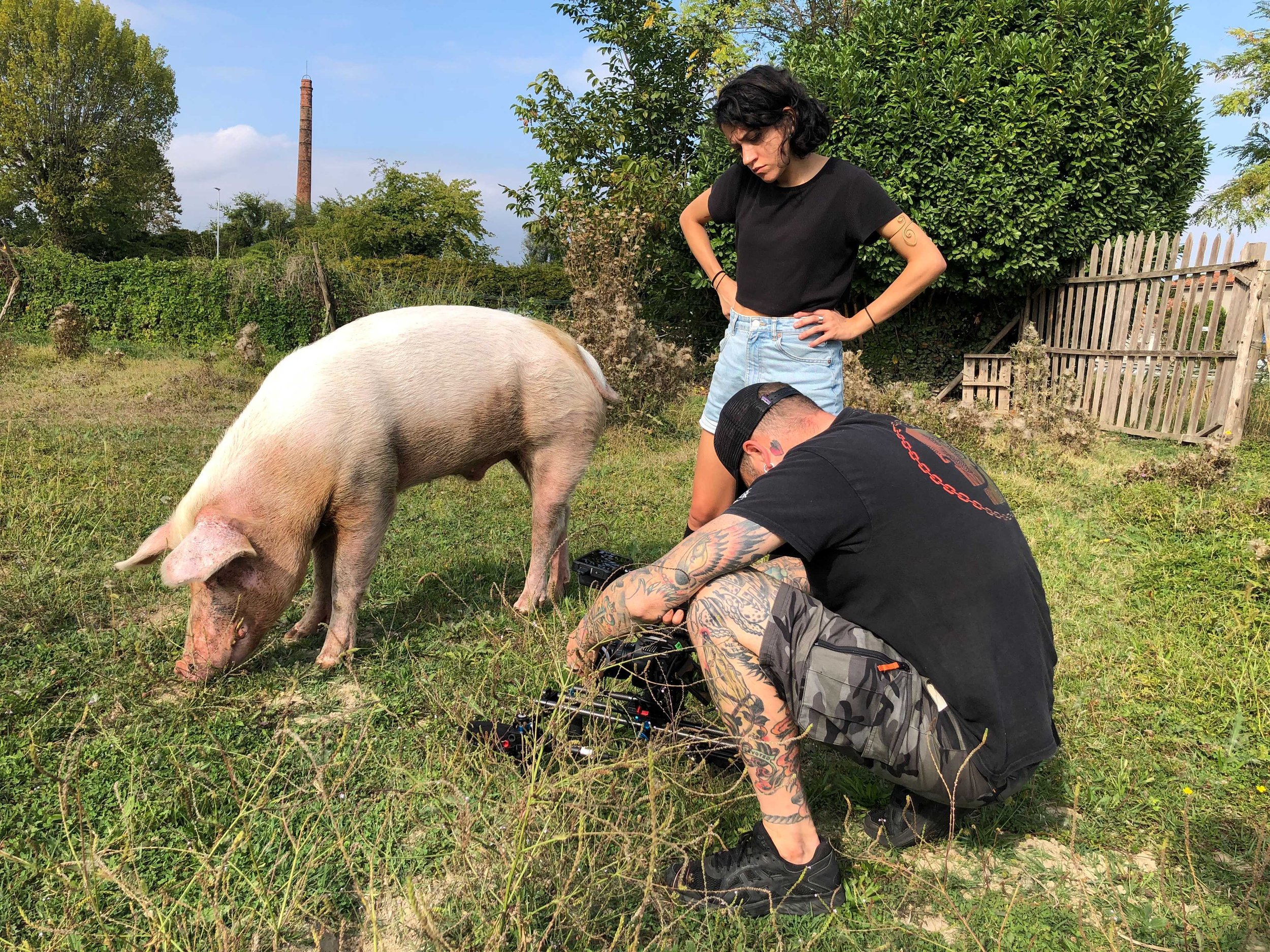Speck. Un destino cambiato: Q&A with filmmaker Martina Scalini
We spoke to director Martina Scalini about Speck, a short documentary film which shares the experience inside an intensive pig farm as told through the eyes of a camera hidden between buttons on a jacket.
Q: What inspired you to direct this film?
I had been working in the communication team of Essere Animali for a week when they told me about the idea for this documentary. From that moment it was immediately clear that together we would make it happen. I come from previous experiences as a documentary filmmaker, for example I did a reportage about the minefields left in the ex Yugoslavia. But this film gave me the opportunity to use my favorite media and use it for the defense of animals, which I believe is the the greatest moral challenge of our time.
This film originates from a hard disk of more than 500 hours of footage, recorded by an investigator from Essere Animali who worked on a pig farm in northern Italy for a month, wearing a hidden camera for the whole time. His goal was to record material for an investigation into the many systemic problems related to factory farms.
I watched all that material making it in a cinematic way, using the hidden eye of the camera, positioned at chest level, to make the viewer identify with and move in the role of the protagonist.
For me it's important to give a new role to animals in cinematic storytelling, especially when we speak about underrepresented animals such as those destined for food consumption. In cinematography animals are used as metaphorical expedients or they are simply props relegated to the background. Excluding the investigative documentaries, in the audiovisual world there are few exceptions that interrupt this monotonous narrative tradition. In the last few years I have seen two films going in a new direction: Space Dogs (2019) by Elsa Kremser and Levin Peter and Gunda by Viktor Kossakovsky, produced by Joaquin Phoenix.
Q: What was something the undercover investigator shared with you/told you that shocked you the most?
When I started thinking about the film I had seen all the footage shot by the investigator, but I had not yet met him. We met one day for an informal interview so I could gather information and understand which direction to take for the film. We talked about his experience as an investigator for 5 hours -he had done 3 investigations in different farms, including dairy cows. It was very intense, we spoke about our lives, the difficulty of choosing to be on the side of animals, we laughed, we cried. At the end of this we became friends. The thing I remember that broke my heart was that: in the factory farm at the end of each day it was normal to check how many pigs died and mark them with an x on cards. It’s a detail that makes you understand how normal it is that animals die every day. This has also become an important detail within the film.
Q: What’s a fun or interesting fact you learned about pigs while making this film?
I want to tell you a fun fact: the last day of shooting with the pig protagonist of the film we filmed for a whole hour, but at a certain point the pig was clearly annoyed by the camera and he perfectly understood that it was "my fault" if the camera was filming, so he started to give me head as if telling me “please, leave me alone”. We stopped shooting.
Q: What was something new that this film taught you about the relationship between humans and animals?
This is also a theme of the film: the difference between those who can choose and those who can’t. In this case, the protagonist finds himself making an impulsive choice, but if you put that into perspective it is nothing more than the result of a bigger and deeper decision, namely that of looking at animals for what they are: other living beings who inhabit this world with us and not for us.
Q: Do you expect any backlash, and how would you answer it?
For now the film is doing well, especially to an audience not familiar with these topics. The few criticisms I received came from other animal rights activists who told me that the suffering of animals is not visible enough. I explained to them that this is a choice.
Q: Why did you decide not to include such dramatic and bloody scenes?
I deliberately avoided scenes of explicit violence, because it is unnecessary to look directly at brutality in order to understand that it is rife in certain places. I preferred to give space to the power of a story.
Q: Is it your hope that people watching this film will go vegan, or understand the important work of animal sanctuaries? What one message would you like audiences to leave with?
I don't know if people will go vegan after watching the movie. The hope is that after having experienced this film you will come out changed in some way, even if only for a moment. Maybe while crossing the aisles of a supermarket, someone could remember the story of Speck and suddenly see those pieces of meat no longer as goods, but as bodies.
Q: Who would you recommend this film to?
This film is especially for an audience that is not yet sensitized and I would very much like it to reach them first of all.
Q: How can we understand all animals that are born have a desire to live which is as important as the human desire to live a safe, thriving life?
For me the most effective way to understand that is to experience animals in sanctuaries, which for me are political places of resistance where you can glimpse the world we are trying to build piece by piece. Here it is clear how each animal (especially those we are not used to knowing) has its own personality, its characteristics. I don't know anyone who hasn't been changed in some way after an experience in a sanctuary.
Q: What’s next? Any exciting projects you are working on?
I would like to work on a narrative documentary on systemic violence, relating the life of animals on farms and those who work in these places. These are people who, as I said, often have no choice and in many cases they are migrants fleeing from situations of violence and who find themselves having to commit violence themselves. Some time ago the Guardian made a survey on the lives of workers in the European meat industry, where it clearly emerges as a multibillion-dollar power (employing 1 million people) often migrant jobs to which it does not recognize rights and safety at work.
Click here to see upcoming showings of Speck at international film festivals. The film will be made available online at some point in the near future, so keep your eyes peeled!
Martina Scalini is an author, documentary filmmaker, and activist based in Milan, currently she is the communication manager of Essere Animali.









